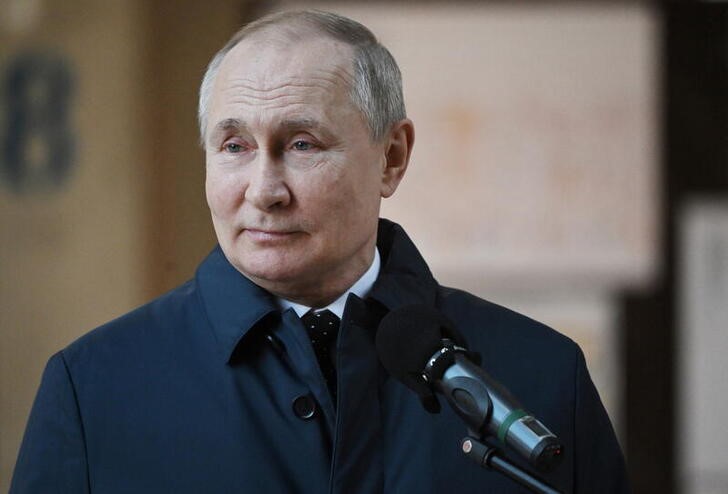By Geoffrey Smith
Investing.com -- Italian Prime Minister Mario Draghi called Russian President Vladimir Putin late on Thursday in an effort to relieve the pressure on world grain markets, hoping to persuade Russia to allow Ukrainian ships free passage through from their Black Sea ports to world markets.
Putin responded by pressing Draghi for help in lifting western sanctions on his country, reminding him - at least obliquely - of Russia's ability to solve Italy's growing energy crisis.
The readouts of the call published by the two sides were starkly different. Draghi's restricted itself to two sentences, saying that "the conversation concentrated on developments in Ukraine and on the efforts to find a solution to the food crisis and its grave repercussions for the world's poorest countries."
Putin's, by contrast, stretched out to four paragraphs. He blamed Ukraine, which mined the approaches to its harbors at the outset of the war to stop attacks by Russia's navy, for impeding the flow of food out of the ports of the Black Sea and the Sea of Azov. He also blamed the West's pandemic-era stimulus policies.
"Noting the unjust accusations toward Russia about the supply of agricultural products to world markets, Vladimir Putin drew attention to the fact that the difficulties that have arisen are connected not least to the disruption of global production and supply chains, and also to the financial policies of western countries during the coronavirus pandemic," the Kremlin said. These had been made worse, he added, by the sanctions imposed by the West on Russia since the start of what the Kremlin still calls a "special military operation".
Putin then offered Draghi a quid pro quo, the Kremlin readout said.
"The Russian Federation is prepared to make its substantial contribution to overcoming the food crisis through exports of grain and fertilizer, on condition that the politically motivated limitations imposed by the western side are lifted," the Kremlin said.
The Kremlin's readout ended with a veiled reference to Italy's dependence on Russian energy imports. Italian oil and gas giant Eni (BIT:ENI) recently angered the European Commission by going along with a unilateral rewriting of its gas supply contract with Gazprom (MCX:GAZP), forcing it to pay in rubles. The move was widely seen as undermining European solidarity vis-a-vis Russia and has blunted the Commission's attempts to impose an embargo on Russian oil and fuel imports by the end of the year.
In discussing the problem of energy security, Russia's inclination to continue supplying natural gas to Italy and contractually-fixed prices was confirmed," the Kremlin said.
Neither side's readout made any reference to the possibility of a Russian sovereign default in the coming days. The U.S. Treasury this week said it won't renew a temporary waiver from existing sanctions that was applied to the servicing of Russia's dollar-based debt.
